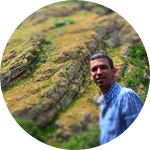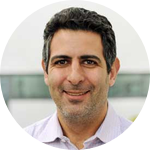About This Project
Known as the 'vanilla triangle,' the Northeast region of Madagascar produces some of the world's highest quality vanilla (V. planifolia). This resource rich area also holds extreme poverty, the majority living off of less than $2/day. At its peak in 2016, vanilla was going for upwards of $400/kilogram. But who benefits from the global trade? This study examines the commodity chain of vanilla to see how benefits are shared and its potential for poverty alleviation.
Ask the Scientists
Join The DiscussionWhat is the context of this research?
Recently, due to both climatic disturbances and political unrest in Madagascar the price of Vanilla has reached an all time high of $400 per kilogram. While this might seem like good economic news to the area of Northeast with has chronic poverty and a history of uneven development, however, many of the locals generally do not benefit from such high prices. In fact, high prices might actually have the reverse effect of causing some growers to harvest their vanilla before it is ready- diminishing its quality and overall price they can get for it. There are also environmental issues as high prices drive locals to clear rainforests in order to tap into surging demand. This surge reflects the volatility of the market and the precariousness of those who are involved.
What is the significance of this project?
Madagascar currently grows some of the best Vanilla in the world; however, our understanding of its complex commodity chain is still vague at best. A deeper understanding into the inter-sectional issues of economic, political, social and environmental will help provide the evidence needed to create more equitable distribution of benefits to those at the production side of the chain. We want to provide data to support different community and civil society groups working on poverty alleviation in the area, making sure that targeted inventions, such as the development of an ethically traded vanilla, can be successful and deliver benefits to those who need it most. This research is meant to provide a voice to all actors in the commodity chain.
What are the goals of the project?
Our main goal is to use a commodity chain analysis to trace of benefits in the global trade of high–quality vanilla, particularly to women and youth:
Our three objectives:
Explore the feasibility of an ethical brand (e.g., fair trade) which may be used as a way to stabilize prices and deliver much needed benefits to small farmers.
Deliver research results to Malagasy participants (locals, scientists, government officials and businesses) at local/regional and in the larger workshop with national policymakers in the capital Antananarivo.
Train up to three young Malagasy scientists on research data collection and dissemination into both academic (journals) and more mainstream popular outlets (newspapers, policy briefs, and internet and social media).
Budget
Key to this work are the two impact dissemination workshops which will be held with stakeholders in both a regional center of Sambava and the capital Antananarivo. It is increasingly important the scientific findings are communicated effectively to not just academic communities, but to wider networks of individual stakeholders (local resource users, civil society, policy makers and business leaders). The workshop funds will allow for room rental and food during these events and other logistical issues (such as av equipment). Another key aspect is the ability to train and recruit a good team of diversity research assistants who are experienced and can benefit best from different scientific methods we adopt, such as commodity chain analysis and qualitative research methods. Travel and other essential research costs are in-line with typical travel expenses for research in Madagascar and in the region.
Endorsed by
Meet the Team
Affiliates
Benjamin Neimark
I am a Lecturer (Assistant Prof.) at one of the leading interdisciplinary environment research institutes in the UK –Environment Center, Lancaster University. I received my Master’s degree at Cornell University and a PhD at Rutgers University. I am a human geographer with research and teaching interests in international development, environmental policy and governance, coupled human environmental relations, natural resource extraction, and bioeconomy/green economy, food security and sustainable development with a regional focus on Africa and Madagascar. My interest in the politics of natural resources extraction stems from my work with the Agribusiness in Sustainable Natural African Plant Products program at Rutgers University. This work included the creation of the first Malagasy Natural Products Label (NATOIRA)
I have over 15 years’ experience in international sustainable development with a particular interest on high-value natural products. I have a large research and scholarly network in Madagascar, Europe and in the US and I am co-founder of the Political Ecology Network (POLLEN). My work engages directly with policy and local governance institutions, working directly with development agencies and civil society groups, such as USAID and Conservation International.
Former research explores the history and politics of bioprospecting in Madagascar. I examine case studies of drug discovery and analyze the politics of biodiversity access and local effects of conservation outcomes. This research, funded by a Fulbright Institute for International Education (IIE) Award involved over 14 months of intensive ethnographic work with local resource users, policymakers, government officials and CEOs of Malagasy firms and representatives of US companies. My current research was funded by a National Geographic Research Award concerns the politics of biofuels and large-scale land acquisitions in Africa and Madagascar.
Lab Notes
Nothing posted yet.
Project Backers
- 0Backers
- 0%Funded
- $0Total Donations
- $0Average Donation

